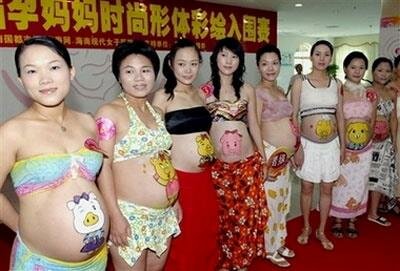Another Chinese Mother's Special: Maternity "Confinement”
Beware: this post is like the ramblings of a woman on the verge of breakdown.

About a month ago, I became the proud mom of a baby boy. Needless to say, it was the most magical experience of my life.
This post, however, is less about the warm and fuzzy feelings of a new mom. It is more like the ramblings of a woman on the verge of an emotional breakdown as the result of a unique Chinese tradition – 月子 (yue4zi). The term refers to a full month of confinement after giving birth. This tradition is said to have started around 2,000 years ago during the Han Dynasty. It must be one of the most longstanding traditions in China. It was even kept intact during the Cultural Revolution when most other Chinese traditions were denounced.
This tradition is said to have started around 2,000 years ago during the Han Dynasty.
月子 has its roots in traditional Chinese medicine and is founded on the belief that labour is the most strenuous physical experience a woman goes through. Therefore, the month after labour must be used as a time to recuperate. I think many cultures would concur on this. But what makes 月子 very extreme and a candidate for superstition is its actual practice and the claim on a range of dire consequences if one does not abide by it. Now, let me list some of the things that I have to go through during my 月子:
1. NO GOING OUT. I have not taken a single step out of my house (actually my parents’ house since they insist they are better caregivers) for about a month now. I have not even gone to the balcony.
2. NO SHOWER. I definitely smell. But thank God it is winter and that I have a full-time nanny who cleans me with a warm towel every day.
3. NO HAIR WASHING. This is something that I had to fight for as I have an obsession with clean hair. So by the end of the first week, I almost got down on my knees begging my mom to let the nanny give me a wash. Now, I am granted 2 washes every week.
4. NO TEETH BRUSHING. My salvation is Listerine and cotton buds.
5. NO COLD FOOD. My mom even microwaves apples and oranges for me.
And the list goes on. So why all these extreme practices? Well, without much quantitative or qualitative data, every single Chinese would tell you that by doing any of the above, you will suffer from a related illness sometime down the road. Taking brushing teeth, for example – legend has it that it will cause gum infection and teeth ache. Why no shower? You will develop rheumatism. And you can probably guess what washing hair and eating cold food will lead to.
It is surprising how these seemingly ridiculous acts are still so religiously carried out even in today’s society and by women across demographics in China. And I have to admit that what I am going though is a much toned down version of 月子. I know many young professional Chinese women who are as hardcore as women from 1,000 years ago. They would not even leave the bed. I guess the explanation is that sacrificing personal liberty and hygiene for a month is a small price to pay to prevent a debilitating future ailment.
But more importantly, the will of a Chinese mother is unyielding when it comes to 月子. My mom would not back down safeguarding her daughter’s post-maternity health. This brings me to the ultimate revelation of why this old and semi-superstitious tradition has survived and thrived in the past 2,000 years: new moms who just gave birth to a new life have a new found level of respect and love for their own mothers. They know as wacky as 月子 might be, it is done out of love. So I will tell my mom in 20 years’ time that were it not for her insistence, I would have rheumatism, infected gum and really bad migraines.
P.S. I want to thank my wonderful husband who despite being Canadian and completely foreign to the idea of 月子, showed enormous understanding, support and love.
This post was originally published on Jenny Zhu in January 2011.

















